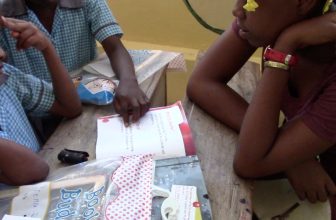
By
Chrisyl Wong-Hang-Sun
MRes Anthropology, 2022-23
Down where the river meets the sea,
An old man sits beside me.
With his long white beard and skin, a rich Nwar[Black]
He begins to share with me our zistwar [history]
Long ago we knew these waters,
Long lived our sons and our daughters.
In unison we moved to the beat of the shore,
A harmony that cannot exist anymore.
And at the source of the river flowed abundant life
Without any tension, pain, or strife.
We had balance, at peace with our land,
As she nurtured us with her generous hand.
But now, all of that is lost.
A disrupted balance, and at what cost?
And as you strive to reach for the stars,
Is it worth the money, power, and call to arms?
Down where the river meets the sea,
An old man sits beside a coconut tree.
Weaving his basket to harvest to some fruit,
I realised I was wrong in my pursuit.
For greed and desire can never be satisfied,
And the lust for more must be cast aside,
To make space for the things that bring life,
With the river, sea, and land, we must unite.
Returning to the source of my being,
I no longer succumb to that which is fleeting.
Down where the river meets the sea,
A wise old man has set me free.
Between 1968 and 1973, the entire Chagossian population were illegally and forcibly displaced from the Chagos islands, their ancestral homeland, by the British Government, to construct a US naval base. Since then, the diaspora has been legally fighting in the hope of returning to their homeland. This poem bore out of my fieldwork that I conducted in 2023 with members of the native Chagossian diaspora in Mauritius. During my fieldwork I dialogued with the anthropological themes of hope, law, future, and home, through a series of interviews and participant observation, exploring native Chagossian perceptions of the forced displacement and onward migration to the UK, through the UK’s Nationality and Borders Act 2022.
This poem speaks to the Chagossian livelihood and material culture, the unity of the people that lived on/with their ancestral homeland, and the injustices that took place as a result of the forced displacement. As a Chagossian myself, this was a particularly challenging and painful ethnographic project, as I learnt about the suffering of my people through their stories. I experienced many conflicting feelings of both pain and joy as I conducted fieldwork. The poem came to me in a half dream-state, just after I had finished my fieldwork in Mauritius, as I was thinking through my data, my feelings, and my connection to my homeland/ancestors. I awoke from a dream of a man drumming loudly, scribbled the poem down and then fell back asleep. I feel that poetry is a means for the researcher to articulate thoughts and feelings that otherwise may be difficult to do, particularly in academic writing.
The image that pairs with the poem was taken in Mauritius. The picturesque sunsets and beaches of Mauritius inform my perception of what my grandfather’s homeland was like for him. Like the image, the poem is situated by coconut trees by the sea.






